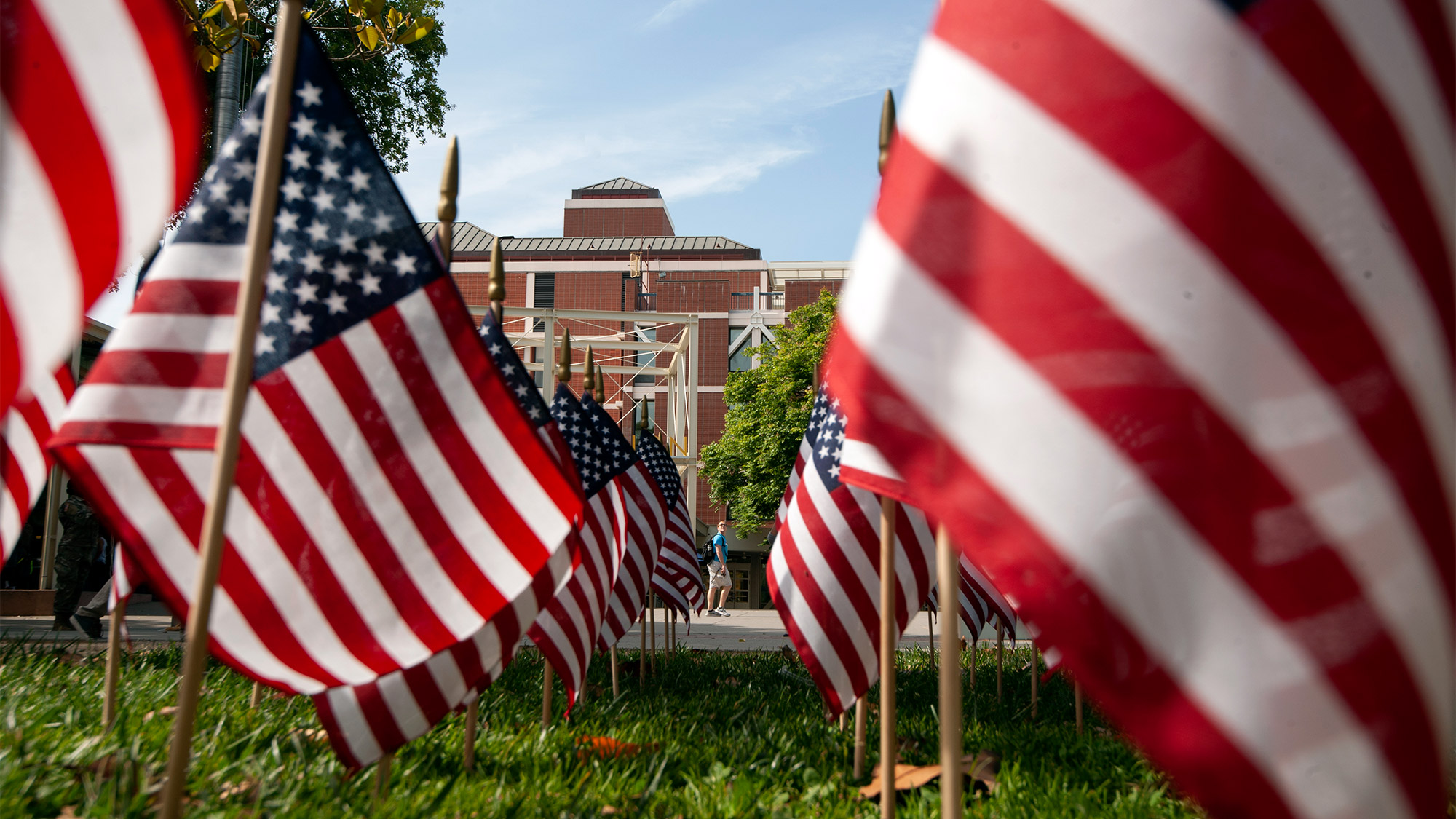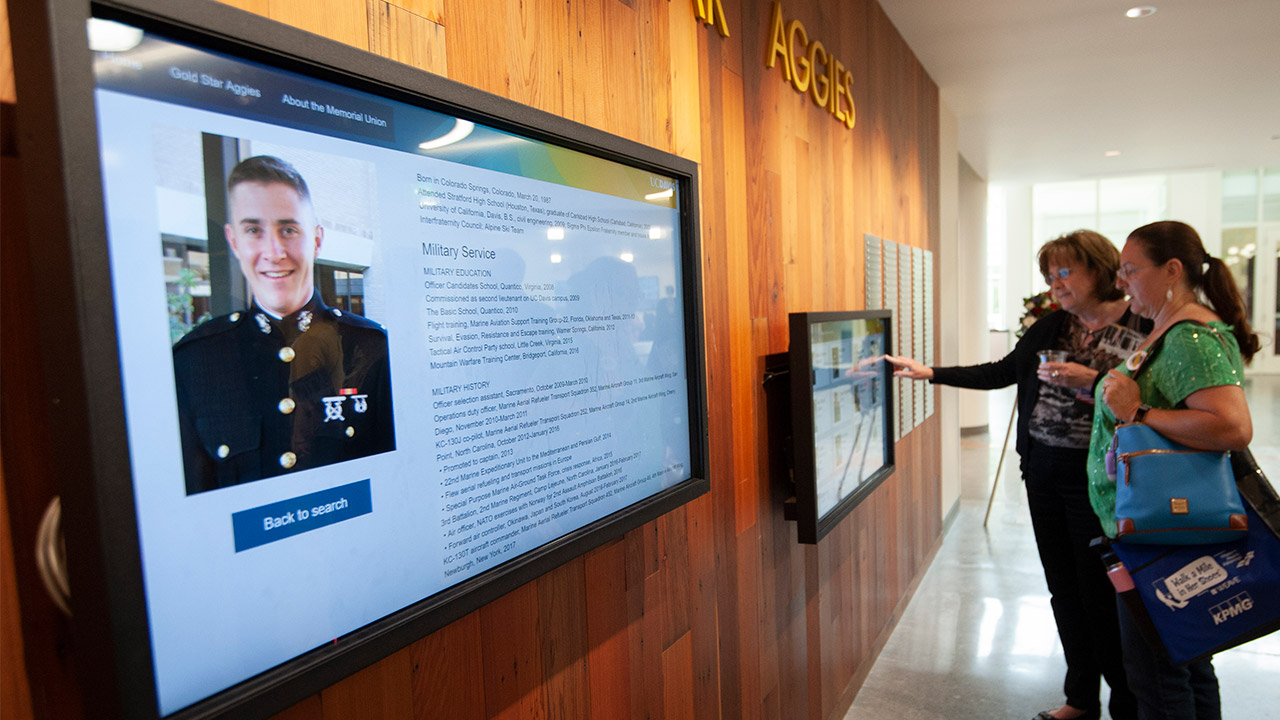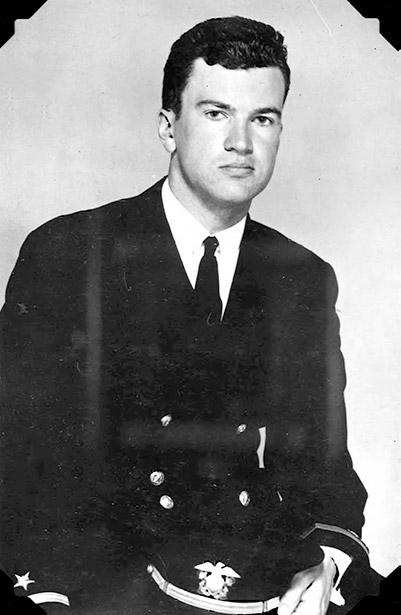A group of students will visit the Quad later this week, but they won’t be studying or relaxing. They’ll be arranging a series of American flags, one for each Gold Star Aggie the university has lost in military service to the United States.
Those 136 flags will stand as a reminder of Memorial Day and the meaning behind the Memorial Union, and take on extra importance in another year when a traditional ceremony can’t be held. Veterans, ROTC cadets and others who would have normally attended UC Davis’ Memorial Day Ceremony have shared their thoughts about the meaning of Memorial Day, and many of them are compiled in the above video by Christopher Selvo, a student intern in the Office of Strategic Communications.
“To me, Memorial Day is a day of service,” said one would-be ceremony guest, Xóchitl Rodriguez Murillo ’08, deputy secretary for minority and underrepresented veterans at the California Department of Veterans Affairs and a sergeant in the Army Reserve. “It’s a day of gratitude. It’s a day of showing our appreciation to our fallen by rendering our service to the veterans who are still with us today.”

Flags will be arranged Thursday
Some of the same ROTC cadets who will be arranging flags Thursday — the day the annual ceremony would have been held — also shared their reflections on the holiday.
“What Memorial Day means for me is a day for Americans to stop and pause, and reflect on the ultimate sacrifice that many [members of the] armed forces made, as well as what their families had to sacrifice by losing one of their loved ones,” said Sara Kuehl, a junior majoring in nutritional biology.
Eric Graham, an Army National Guard veteran who now works in Design and Construction Management, said the meaning of Memorial Day was driven home when he visited Arlington National Cemetery and saw the Tomb of the Unknown Soldier.
“The pomp, the circumstance, the precision, the seriousness of those guards brought home the fact that freedom is no easy feat to achieve and maintain, and the price you pay is strong,” he said.
Remembering our Gold Star Aggies

That cemetery also has a strong significance to Cindy Elliott. Her son, Sean Endecott Elliott ’09, is buried in Section 60, home to some of the country’s most recent military casualties.
“Memorial Day signifies the start of summer and all the activities we enjoy of that season,” Elliott said. “But I ask that you don’t forget those who sacrificed so we have this liberty.”
Sean Endecott Elliott’s name was added to UC Davis’ Gold Star Aggies Wall and Golden Memory Book in 2018, a year after the KC-130T plane he was co-piloting crashed in a farm field in Mississippi, killing him and the 15 others aboard.
His mother remembered his “positive attitude toward life” and said the Marine Corps told her that her son “planned activities to always keep up morale for other Marines.”
“He looked out for others,” she said. “He was often the first one to get things going.”
Never to be forgotten
The Gold Star Aggies Wall and Golden Memory Book can be found on the first floor of the Memorial Union, built in tribute to Aggies lost in service since World War I. The book, which can also be seen online, holds the stories of those Aggies — men like Ralph Peter Plumb ’40, who joined the Naval Reserve three months after graduation.

He was stationed aboard the USS Neosho, a fleet replenishment ship, during the attack on Pearl Harbor in 1941. He and the ship survived, and the following year they were part of the Battle of the Coral Sea, pitting US and Australian forces against the Japanese navy off the northeast coast of Australia.
Japanese bombers reportedly mistook the Neosho for an aircraft carrier and attacked it repeatedly, killing a large number of the crew, including Plumb, whose remains were never recovered. The Neosho was left burning after the battle, and floated for a few days until survivors could be evacuated. It was then scuttled.
In a normal year, the names of Plumb, Sean Endecott Elliott and the other Gold Star Aggies would be read aloud at the annual Memorial Day Ceremony, held on the Memorial Union’s North Courtyard. This year, as was the case in 2020, we’ll all be responsible for taking time on our own to reflect on their sacrifice.
Media Resources
Cody Kitaura is a News and Media Relations Specialist in the Office of Strategic Communications, and can be reached by email or at 530-752-1932.